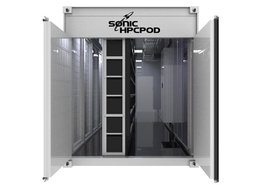Space startup Lumen Orbit has come out of stealth to announce a $2.4 million funding round.
The company hopes to deploy hundreds of very low Earth orbit (LEO) satellites to act as a distributed data center for other satellites, reducing the need for sending data to the ground.
“We started Lumen with the mission of launching a constellation of orbital data centers for in-space Edge processing,” CEO Philip Johnston told GeekWire in an email.
“Essentially, other satellites will send our constellation the raw data they collect. Using our onboard GPUs, we will run AI models of their choosing to extract insights, which we will then downlink for them. This will save bandwidth downlinking large amounts of raw data and associated cost and latency.”
The company, which is only three months old, eventually aims to deploy about 300 satellites at an altitude of about 315 kilometers (195 miles). Initially, a 60kg test system is planned for launch in May 2025 on a SpaceX Falcon 9 rocket.
The company is teaming up with Ansys and Solidworks on satellite design and development. “We have several MoUs [memorandums of understanding] for more than $30 million, and we have a paying customer flying with us on our first demonstrator,” Johnston claimed.
Following the test, it plans to launch eight satellites six months later - followed by five orbital rings over the next six months.
Lumen is the latest in a number of companies looking to put more compute capabilities in orbit. Rival space infrastructure business Axiom Space plans to launch an orbital data center at its commercial space station in 2026, while NTT and SKY Perfect JSAT hope to deploy a number of compute and storage satellites next year.
Blue Origin plans to launch a larger compute-heavy system, Blue Ring, but for geosynchronous deployments.
The EU is also studying the concept of space data centers, and storage-focused Lonestar Data Holdings hopes to deploy data centers on the Moon.
The European Space Agency is separately partnering with Intel and Ubotica for the PhiSat-1, a cubesat that handles AI processing onboard. Startup LyteLoop raised millions to fill the skies with light-based data storage satellites but quietly went bankrupt around 2021.







